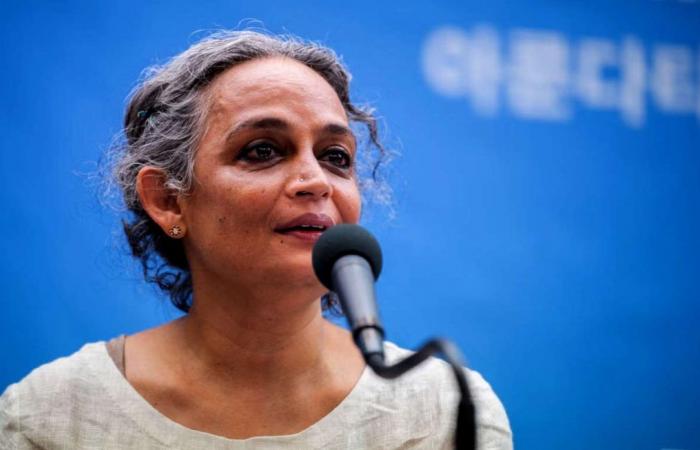Arundhati Roy, renowned Indian writer and winner of the Booker Prize, was recently awarded the prestigious Pen Pinter Prize 2024. The award, given by the English charity English PEN in homage to the memory of Nobel Prize winner Harold Pinter, honors writers who demonstrate an unshakable determination to defense of freedom of expression. However, while Roy celebrates this milestone, she simultaneously finds herself facing a legal battle in India. A country, governed by Narendra-Modiknown for his conservative positions and religious machismo.
Arundhati was born on November 24, 1961 in Shillong, Meghalaya, to a mother who was a women’s rights activist and a father who was a tea plantation manager. Her literary career took off with the novel “The God of small things” (The God of Small Things), published in 1997 and which won her the Booker Prize. In addition to her literary production, Roy is known for her political and social activism, particularly for her open criticism of the policies of the Indian government, the conditions reserved for minorities and the subordinate position of women.
The Pen Pinter Prize was awarded to Roy for his dedication to freedom of expression and his courage in tackling controversial topics. However, this honor comes at a time of great tension which, admittedly not directly connected, is strangely close in time. On June 15, 2024, the Lieutenant Governor of Delhi, VK Saxena, cleared Roy’s prosecution for a speech given way back in 2010 regarding separatism in Kashmir. His words, considered provocative, claimed that Kashmir had never been an integral part of India, a statement that led to charges of sedition and incitement to terrorism
Prime Minister Narendra Modi, leader of the Bharatiya Janata Party (BJP), has often adopted policies that many critics say are aimed at stifling dissent and entrenching a Hindu nationalist ideology. Modi, while declaring himself a democrat, has led a government that has been accused of repressing minorities and limiting freedom of expression.
The Unlawful Activities (Prevention) Act (UAPA), under which Roy was charged, is an anti-terrorism law that allows authorities to detain suspects for up to 180 days without formal charges. The law was amended in 2019 to allow individuals to be classified as terrorists without having to be linked to specific groups.
Arundhati Roy, with her history of activism and open criticism of the Modi government, is a polarizing figure in India. The decision to prosecute her for a speech 14 years ago was seen by many as an attempt to silence one of the country’s most influential and courageous voices. During her speech in 2010, Roy said Kashmir had been forcibly occupied by the Indian military, a claim that fueled accusations of sedition.
The complaint was filed by Sushil Pandit, a Kashmiri activist, who accused the event participants of promoting Kashmir’s separation from India. Even at the time of the speech, the Delhi authorities had considered the possibility of charging Roy with sedition but only now, under the Modi administration, have the charges been formally pursued.
The decision to allow Roy to prosecute has prompted strong reactions from academics, activists and politicians. More than 200 Indian intellectuals and journalists have signed an open letter urging the Delhi government to drop the charges. Opposition politicians, such as Mahua Moitra of the Trinamool Congress, have condemned the move as an example of fascism, an attempt to show that the BJP is still powerful despite its recent electoral defeat.
P. Chidambaram, a former home minister and member of the Indian National Congress, said there was no justification for the charges then and there is none now, criticizing the use of the sedition law to silence dissent. Other writers and activists also expressed their support for Roy, praising her for her courage in standing up for justice and truth and condemning the retrospective use of a law to target an Indian woman and icon.






